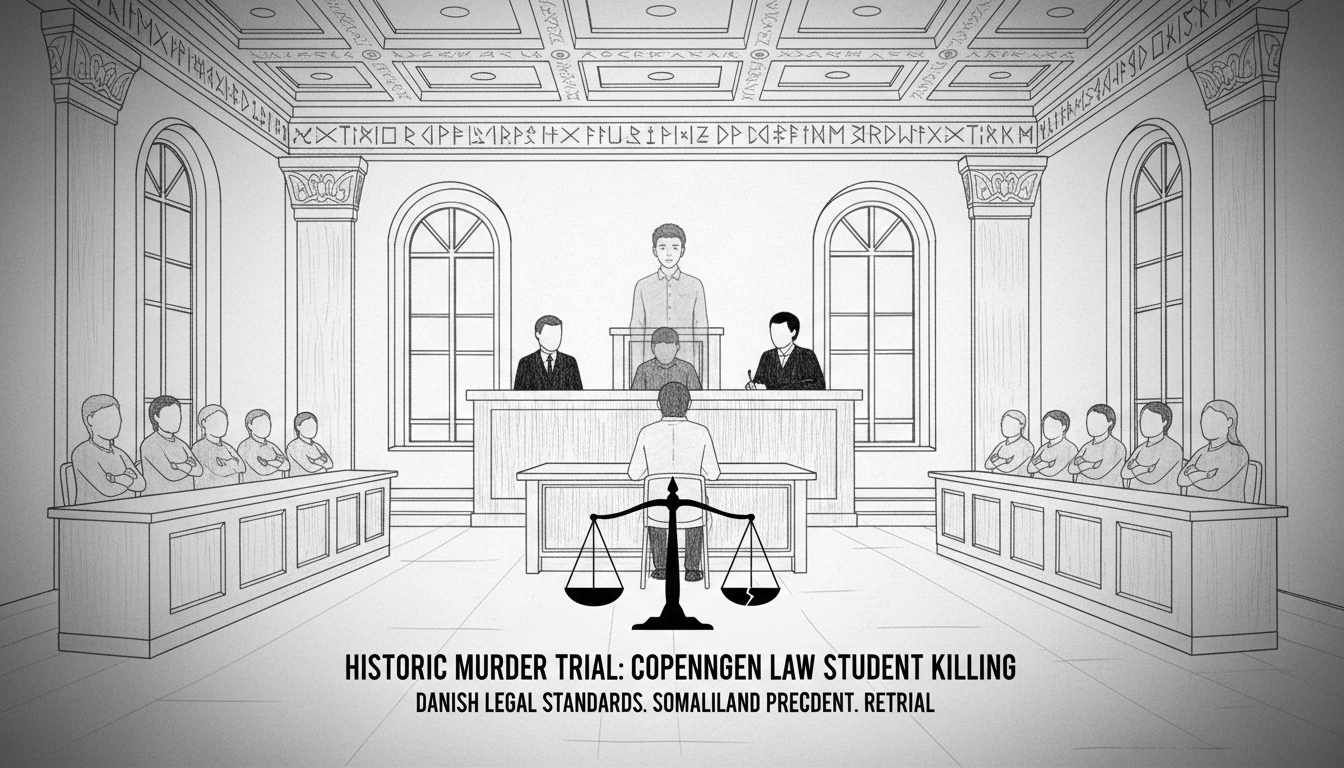Every seat in a Copenhagen courtroom filled Friday morning as the historic trial began for a fatal stabbing that shocked Denmark 13 years ago. The case involves the killing of 21-year-old law student Jonas Thomsen Sekyere, who was attacked at the Bakken nightclub in the city's Meatpacking District back in November 2012. The courtroom's front row held reserved seats for the victim's family members, who watched as a photograph of the young student appeared on a screen at the proceedings' start.
The defendant, now 40-year-old Omer Hassan Sheik Muse, fled Denmark immediately after the crime and traveled to Somaliland and Ethiopia. He only returned to Denmark last year following extensive extradition proceedings. The accused maintains his innocence while acknowledging the violent act that resulted in death, according to his defense attorney's statement to the three judges and six jurors deciding the case.
This trial represents a complex legal situation involving international justice standards. While Muse already faced prosecution in Somaliland, where he received a ten-year prison sentence and served approximately six years, Danish authorities do not recognize that verdict. The prosecutor emphasized the Somaliland proceedings failed to meet the legal standards expected in Denmark, describing it as a conviction without proper evidence.
The Copenhagen court must now determine several critical questions about the defendant's intent. Did he specifically want the law student to die from his knife wounds? Was he aware and accepting that using a folding knife could lead to fatal consequences? These questions about mental state and premeditation will form the trial's core focus over four scheduled court sessions.
Danish murder trials involving international dimensions often face unique challenges. The case highlights how Denmark maintains its legal standards even when defendants have faced prosecution elsewhere. The justice system here prioritizes proper evidence collection, fair trial procedures, and clear establishment of intent in violent crimes.
The trial continues with multiple witness testimonies scheduled, concluding with a final session in early December. The proceedings have attracted substantial public attention throughout the years, reflecting both the tragedy of a promising young life cut short and the complex legal questions surrounding international criminal cases.
Friends and fellow students have consistently remembered Jonas Thomsen Sekyere as an extraordinary individual driven by a strong sense of justice. The random nature of the encounter adds to the case's tragic dimensions—the two men had never met before their fatal interaction at the nightclub. This absence of prior connection makes establishing motive particularly challenging for prosecutors.
Legal observers note this case tests how Danish courts handle defendants who've already faced foreign prosecution. The rejection of the Somaliland verdict demonstrates Denmark's commitment to its own legal standards, even when it means retrying cases that other jurisdictions have already addressed. This approach ensures consistent application of Danish law but also extends the legal process for all involved.

